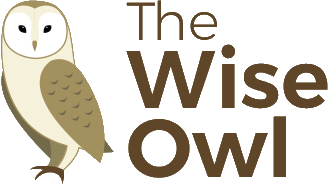If you enjoy bird watching and feeding birds in your garden, you’re probably aware of what you can leave out for visiting birds. However, do you know what not to feed wild birds? There are several foods that you may be tempted to leave out that are actually incredibly harmful to birds. In order to protect and help the birds in your garden, you must be aware of the foods that you can and can’t leave out. Here’s our definitive list of what not to feed wild birds so you can help the birds in your garden grow strong and survive in the wild.
Salty Foods
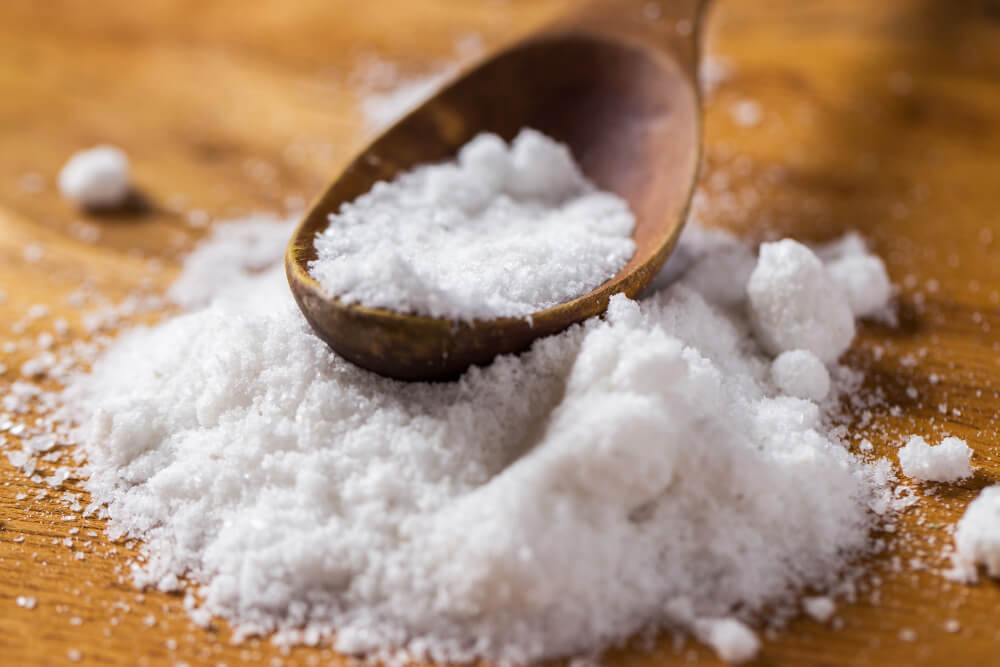
Although birds need a bit of salt in their diet just like we do, too much salt will be detrimental. Smaller birds, in particular, are likely to suffer if you leave salted foods out for them since their tiny bodies can’t handle it. In addition, even a little bit of salt can affect the balance of fluids and electrolytes in a bird’s body. This imbalance can lead to excessive thirst and dehydration, which, in turn, can cause kidney failure and death. Because of this, you should never leave plain salt out for birds either.
It’s best to leave salt away from your bird tables altogether. Some common salty foods that you should avoid leaving out for birds include:
- Salted peanuts
- Crisps
- Bacon
- Pizza
- Chips
- Animal foods containing salt
Desiccated Coconut
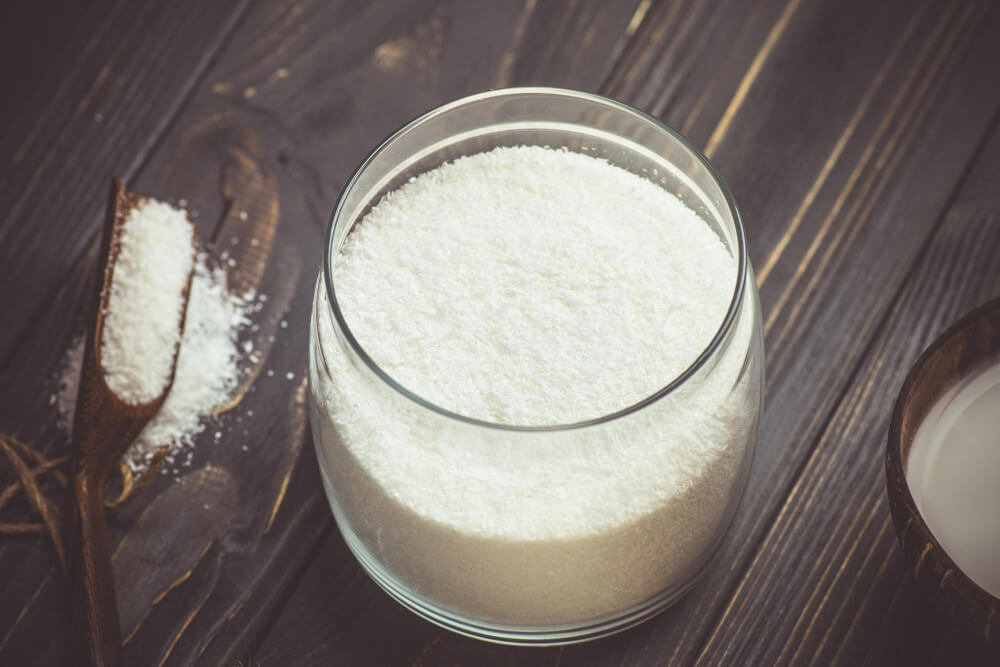
Desiccated coconut is a big no when considering what not to feed wild birds. Desiccated coconut is the dried flesh of coconuts, which swell when rehydrated. When birds consume desiccated coconut, the flakes rehydrate and expand in their stomach. Although these small flakes don’t expand to large pieces, birds don’t stop eating them after a couple of bites, and their small stomachs can’t handle the swelled pieces. Often, this may simply cause discomfort. However, it may also lead to an unbalanced diet and death in the worst-case scenario.
Instead of desiccated coconut, you may feed wild birds small amounts of fresh coconut since it won’t expand in their stomachs.
Milk
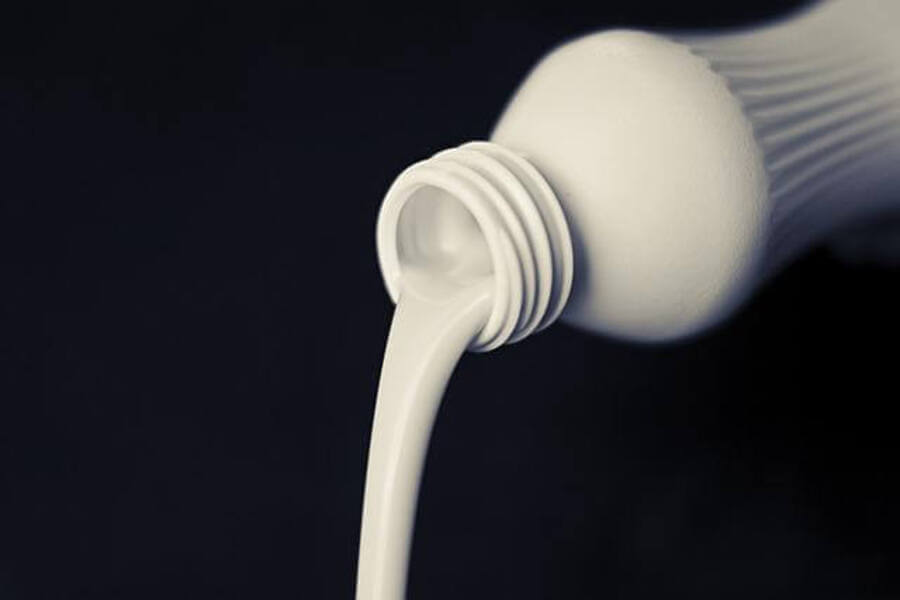
Although there are several fermented dairy products that you can leave out for birds, such as grated firm cheese, you should never leave out milk for them. In short, birds are lactose intolerant, meaning they can’t digest lactose, a natural sugar found in milk and milk products. Since birds’ guts aren’t able to digest lactose, feeding them milk can give them severe stomach upsets and potentially result in death. Instead, it’s best for you to leave out water for birds to drink and bathe in.
Avocado
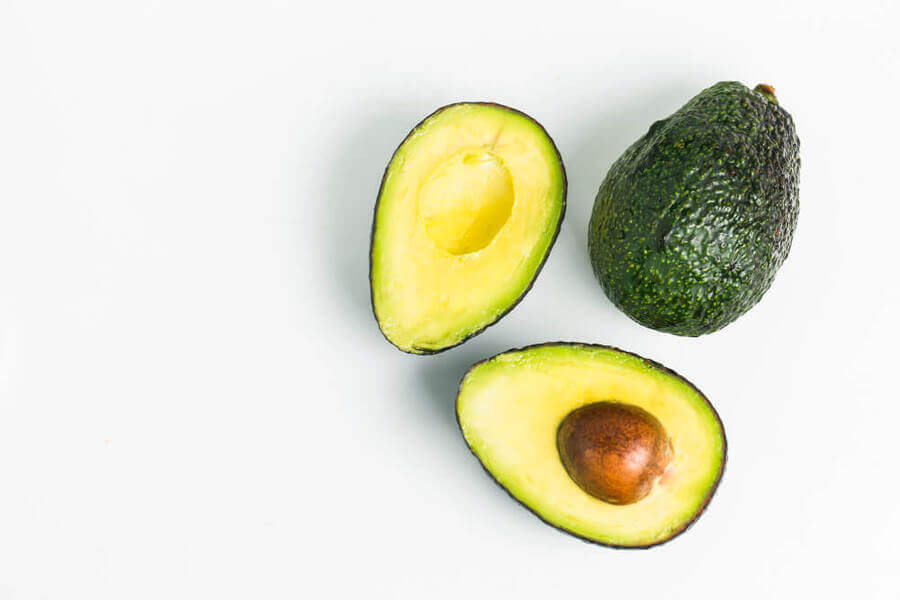
We might call avocado a superfood, but it certainly isn’t to birds. Although birds can eat several fruits, avocado is one you should avoid. This is because it contains persin, an anti-fungal toxin that has the capability of damaging the heart of many species besides humans. You can find this toxin in every part of the plant, including the leaves, skin, meat and pit. As a result, a bird eating avocado can cause lethargy, heavy breathing and potentially sudden death.
Fruit Seeds

You can feed almost any fruits to birds, but you should avoid fruits with seeds or pits in them. This includes fruits like:
- Cherries
- Peaches
- Plums
- Nectarines
- Apricots
- Apples
- Pears
The surprising reason behind this addition to our what not to feed wild birds list is that many fruit seeds and pits contain cyanide. Yes, cyanide – the toxic chemical compound that can kill you. Fortunately, the dose of cyanide in fruit seeds and pits is too tiny to affect us, but it’s lethal for a small bird.
However, you can feed birds the flesh of these fruits as long as you remove any seeds or pits.
Chocolate

You’d be surprised how many people try feeding birds chocolate, but please resist! Chocolate is incredibly toxic for birds, specifically because of ingredients like caffeine and theobromine. Theobromine is a molecule that can harm the heart, stomach and central nervous system of a bird if they ingest it[i]. Eating chocolate can cause stomach upset, diarrhoea, seizures and even death in some birds. Unfortunately, just like us humans, birds can’t resist chocolate. So, avoid leaving it out on your bird feeders.
Onions

There are plenty of vegetables you can leave out in small quantities for birds, as long as you cook them first. But, surprisingly, this common vegetable is incredibly harmful to wild birds. This is because onions are high in sulphur, which can irritate and even burn the lining of a bird’s mouth and stomach. This irritation can cause ulcers and anaemia. Unfortunately, anaemia can kill birds.
Due to the high sulphur content of onions, you should avoid putting them out for birds. Plus, you shouldn’t offer birds anything that you have cooked in the same kitchenware as onions.
Honey

This natural sugar may seem like a great treat for birds, but it can be fatal. Honey can carry harmful bacteria, like fungus, mould, E. coli and listeria. Although the amount of these substances in honey is too small to harm us, it can be lethal to wild birds, and any of them can cause adverse symptoms and even death. So, avoid leaving honey out for birds, and never use wild bird food recipes (such as hummingbird nectar) that contain it.
Instead of honey, give birds a different source of natural sugar by leaving out seedless fruits, like raspberries, grapes and mashed bananas.
Foods In Mesh Bags

Many shop-bought wild bird foods, such as peanuts and suet balls, are sold in nylon mesh bags. However, you should never put out food in mesh bags. This packaging may trap visiting birds’ feet and potentially cause torn-off or broken legs and feet. Additionally, birds with barbed tongues, such as woodpeckers, can trap their beaks in nylon mesh bags.
So, if you buy any foods in mesh bags, make sure you remove them from the bags before leaving them out for any visiting birds.
Mouldy Foods

You should never leave out mouldy or spoiled foods for wild birds. If consumed by birds, spoiled food can cause aspergillosis, a fungal infection that can lead to respiratory diseases in birds. These respiratory diseases may result in death. Although there are debates over whether certain mouldy foods are okay to leave out for wild birds or not, it’s best not to risk it and simply avoid leaving spoiled food out.
Additionally, you should maintain good hygiene with your bird feeders. You must clean them regularly to ensure that mouldy food doesn’t get stuck in them and accidentally consumed by birds. To clean your feeders, make sure to take them apart correctly and use a strong mix of soap and hot water for a thorough clean.
So, What Can You Feed Wild Birds?

Although there are several things to remember when considering what not to feed wild birds, there are plenty of things you can feed wild birds. Although bread, seeds and live foods are the most popular wild bird foods, there are plenty of alternatives you can try to attract a range of different species. Some great foods you can leave out are:
- Seed mixes
- Peanuts
- Mealworms
- Suet balls
- Sunflower seeds
- Uncooked porridge oats
- Potatoes
- Cooked rice
- Seedless fruits
- Tinned dog or cat food
- Dry breakfast cereal
- Grated firm cheese
- Fresh coconut
Take a look at our guide to feeding wild birds for more information.
Should You Feed Birds Bread?
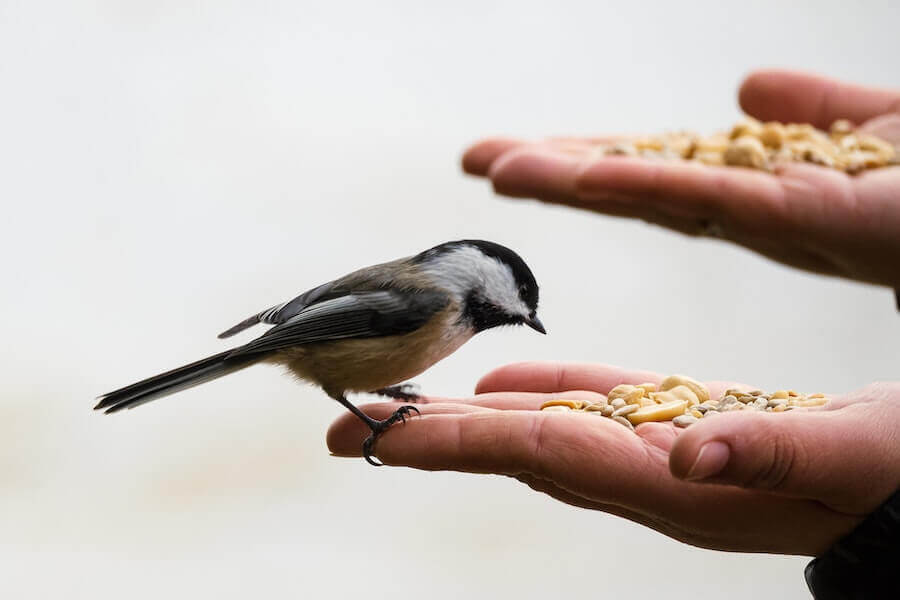
Although you may think that bread is the one of the best food for birds, you should only offer it in small quantities. Bread isn’t harmful to birds, but it doesn’t provide them much nutrition either. Birds need nutrient-rich foods to maintain high energy levels and keep up with their busy lifestyles. So, you can feed birds bread, but try to do so in minimal quantities and combine it with plenty of highly nutritious options.
Now You Know What Not To Feed Wild Birds!
So, now you understand what not to feed wild birds and the healthiest alternatives, you can run your bird feeders like a pro! As long as you try to offer a diverse range of foods that are safe for birds to eat, you should find your garden alive with the sound of birds.
Do you have anything to add to our list on what not to feed wild birds? Also, let us know what foods you avoid in your feeders.
Sources
[i] https://petkeen.com/can-cockatoos-eat-chocolate/
Gemma Sharp is the resident writer for Love Garden Birds, a supplier of premium bird food and accessories. She has had a genuine love for our feathered friends from a young age, and has dedicated a lot of her time to learning all there is to know about them. If you’re struggling to pick the right bird feed for your garden, need help identifying a type of wild bird, or can’t decide where to put a nesting box, Gemma is the person to go to! She is passionate about sharing her years of learnt knowledge with the public. In her free time, she can be found feeding birds at home with her three young boys.
